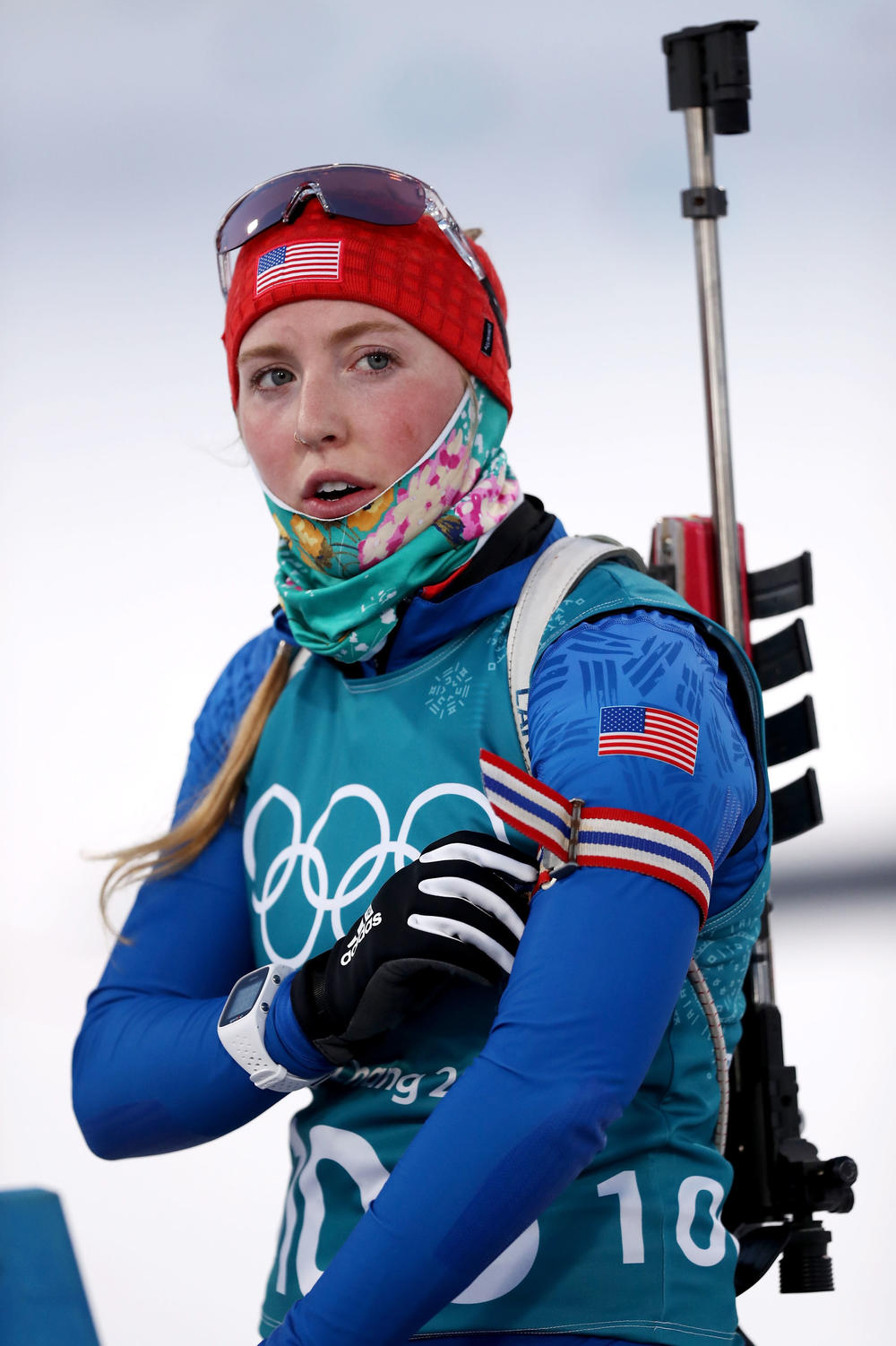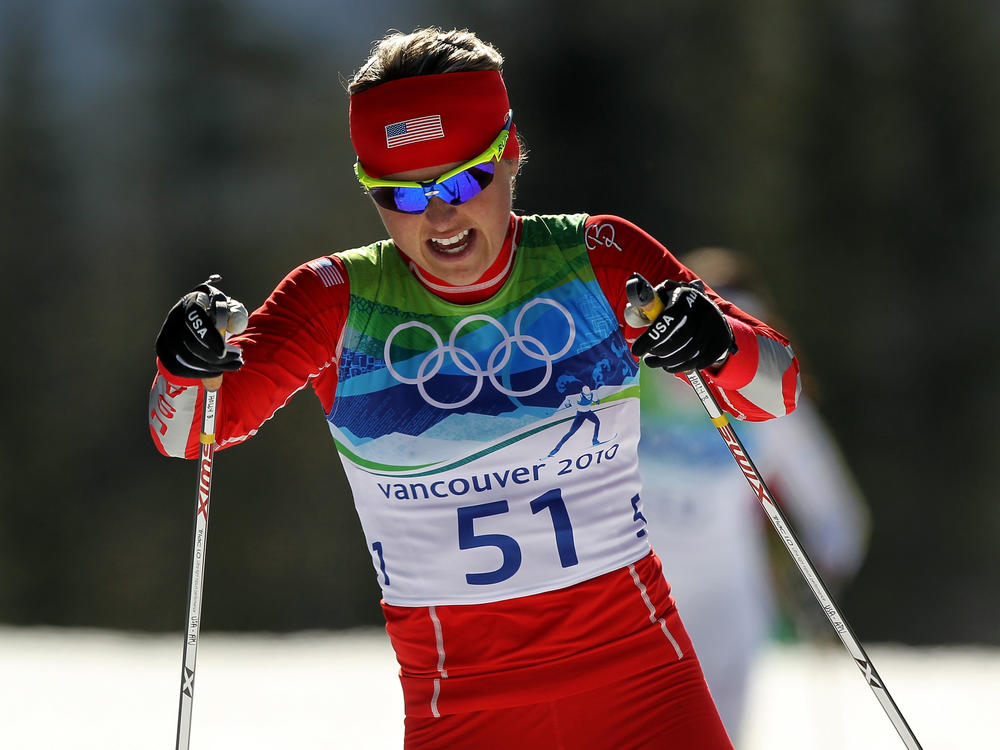Section Branding
Header Content
'A deep depression after the Olympics.' The challenges facing athletes at home
Primary Content
LAKE PLACID, N.Y. — Maddie Phaneuf says she'll never forget the first time she felt like an Olympian. It was at the 2018 opening ceremony in Pyeongchang, South Korea. The stadium was packed and the music was blasting.
Phaneuf, a biathlete from the small town of Old Forge, N.Y., had made it to one of the biggest sports stages in the world.
"That was like the most amazing part of the whole experience," says Phaneuf.
What Phaneuf and a lot of Olympians learn pretty fast, though, is that things don't always go as planned. For some athletes at the Beijing Games, it was COVID-19 that upended their experience.
For Phaneuf in 2018, it was strep throat. She had to quarantine alone at the Olympics and never got to race. That euphoric feeling from the opening ceremony faded fast.
"It was really depressing and really sad and it was really hard to come home after that and talk to people about it," says Phaneuf.
Holly Brooks says that's a common feeling among Olympians. Brooks is a two-time Olympic cross-country skier and now works as a therapist in Anchorage, Alaska.
Since most Olympians don't win a medal and many don't even qualify for the finals, returning home after the Games can be hard.
"A lot of athletes fall into a deep depression after the Olympics," says Brooks. "Athletes post-Olympics or post-retirement need a lot of support, a lot of people reminding them of their worth beyond just their athletic achievements and results."
The U.S. Olympic and Paralympic Committee formed a mental health task force ahead of the 2020 Tokyo Olympics. American athletes at the Games now have access to a dedicated team of counselors and other mental health resources, such as wellness and meditation apps.
Dr. Jessica Bartley, director of mental health services for the USOPC, says they also offer support to athletes after the Olympics.
"We do have groups that are getting together post-games," says Bartley. "It's just an additional resource for you to be at your best, so I think that is something that we've really tried to normalize."
Athletes like gold medalists Simone Biles and Chloe Kim have also helped normalize mental health issues, talking openly about the anxiety of their own Olympic ambitions.
For biathlete Maddie Phaneuf, that pressure was too much. At the height of her career, just months before the 2022 Winter Games in Beijing, Phaneuf retired from the sport. She says some people wondered why.
"'Well, why did you retire? The Olympics are this year, you couldn't have just lasted that much longer?' And it's like no, you don't get it, I physically couldn't even get out of bed," says Phaneuf.
A lot has changed in the last few months. On a recent day in early February, Phaneuf went out to the biathlon range in Lake Placid, N.Y. Wearing a blue vest that says 'USA' on the back, Phaneuf fired off a round. She breathed in and then fired off another.
Phaneuf wasn't at the range as an athlete, but instead as a coach. She works with kids ages 13-18, helping them with their shooting and skiing skills.
Coaching keeps her connected to the sport. As for her mental health, Phaneuf is going to therapy once a week. But it's still a struggle. She's glad other athletes are opening up about their struggles, too, and that more people seem to be listening.
"People are finally recognizing that these athletes are not superhuman and robots like everyone thinks they are. It's like, 'Oh they're a normal person who has their own mental health issues.'"
Experts say for a lot of athletes in Beijing, those issues may really come roaring back once the excitement of the Olympics wears off.
Copyright 2022 NCPR. To see more, visit NCPR.



